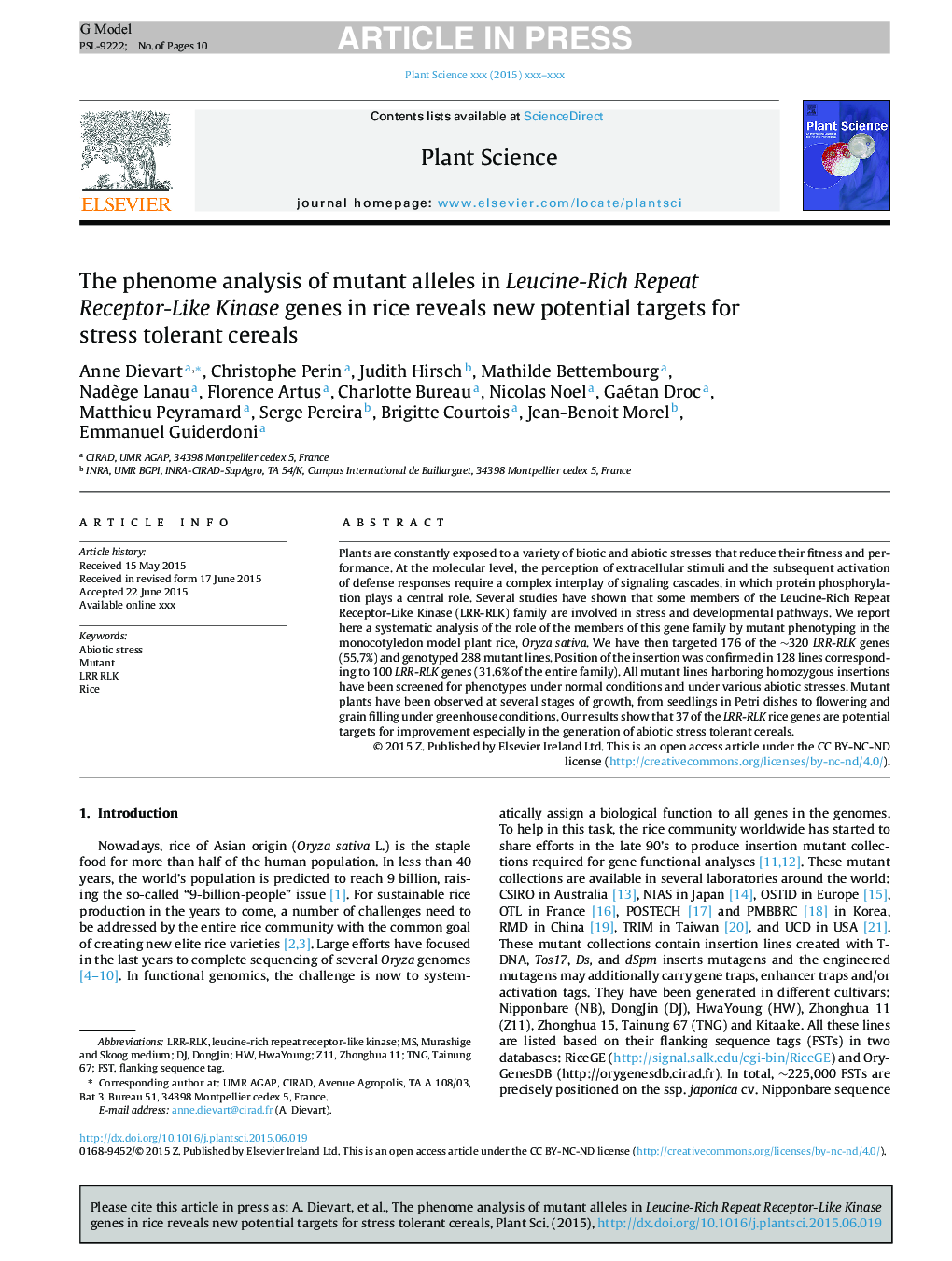| Article ID | Journal | Published Year | Pages | File Type |
|---|---|---|---|---|
| 8357327 | Plant Science | 2016 | 10 Pages |
Abstract
Plants are constantly exposed to a variety of biotic and abiotic stresses that reduce their fitness and performance. At the molecular level, the perception of extracellular stimuli and the subsequent activation of defense responses require a complex interplay of signaling cascades, in which protein phosphorylation plays a central role. Several studies have shown that some members of the Leucine-Rich Repeat Receptor-Like Kinase (LRR-RLK) family are involved in stress and developmental pathways. We report here a systematic analysis of the role of the members of this gene family by mutant phenotyping in the monocotyledon model plant rice, Oryza sativa. We have then targeted 176 of the â¼320 LRR-RLK genes (55.7%) and genotyped 288 mutant lines. Position of the insertion was confirmed in 128 lines corresponding to 100 LRR-RLK genes (31.6% of the entire family). All mutant lines harboring homozygous insertions have been screened for phenotypes under normal conditions and under various abiotic stresses. Mutant plants have been observed at several stages of growth, from seedlings in Petri dishes to flowering and grain filling under greenhouse conditions. Our results show that 37 of the LRR-RLK rice genes are potential targets for improvement especially in the generation of abiotic stress tolerant cereals.
Keywords
Related Topics
Life Sciences
Agricultural and Biological Sciences
Plant Science
Authors
Anne Dievart, Christophe Perin, Judith Hirsch, Mathilde Bettembourg, Nadège Lanau, Florence Artus, Charlotte Bureau, Nicolas Noel, Gaétan Droc, Matthieu Peyramard, Serge Pereira, Brigitte Courtois, Jean-Benoit Morel, Emmanuel Guiderdoni,
